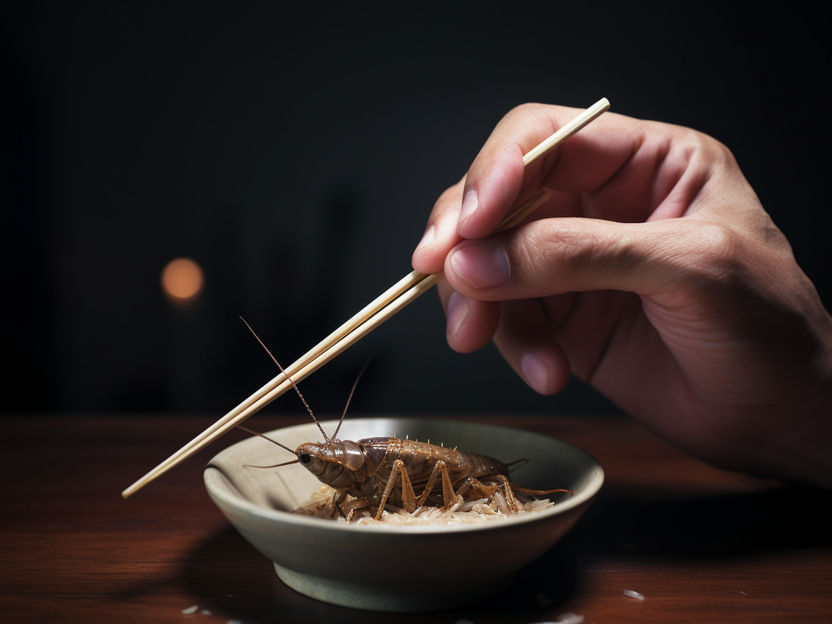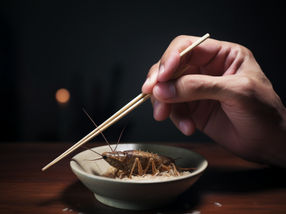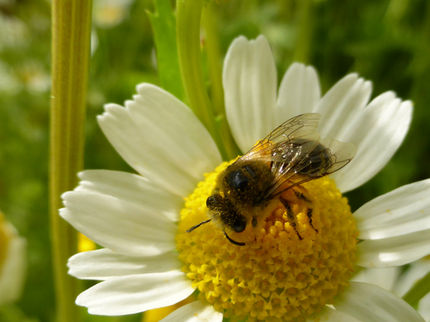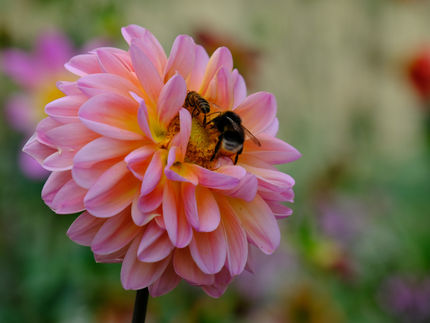Chitin from consuming insects can help both gut microbiota and global health
Advertisement
chitin and healthy fats from insects appear to contribute to healthy gut microbiota and are strong sources of protein and nutrients, according to a paper co-authored by a Colorado State University researcher and published in Nature Food.

symbolic picture
computer generated picture

Tiffany Weir, seen in her lab, has a research program that integrates gut microbial, molecular, and metabolic datasets to understand how interactions between diet and the gut microbiome contribute to chronic diseases
Colorado State University


Tiffany Weir, an associate professor in CSU’s Department of Food Science and Human Nutrition, co-authored the paper with the University of Wisconsin’s Valerie Stull. They pioneered human research on cricket consumption’s effect on gut microbiota.
Weir said that her and Stull’s earlier research helped spawn Weir’s latest study of how cricket-derived chitin in designer chocolate patties may increase positive prebiotic effects on individuals with irritable bowel syndrome.
“Edible insects and insect fibers may be unusual in the American diet, but they are commonplace around the globe, as insects are part of many traditional cuisines,” Stull said. “They are gaining attention as an environmentally friendly source of animal protein.”
A previous study referenced in the paper estimated 3,000 ethnic groups in 130 countries eat insects mostly harvested in the wild. But insect farming also is growing in popularity as it uses less water, land and feed and emits fewer greenhouse gases.
“Although reduced environmental impacts of insect rearing compared to traditional livestock have been a key selling point for insect-based products, there are also underexplored and under-appreciated nutritional benefits,” Weir said. “Insects are touted as a good source of protein, but the fiber component, chitin, is not found in other animal foods, and the omega-3 content may be higher than what is found in many plant foods. “These components may provide unique benefits for the gut by encouraging healthy gut microbiota and reducing intestinal inflammation.”
Weir said that the paper is a perspective piece summarizing current knowledge on the topic and highlighting gaps in related research.
Among the paper’s key points:
- The types of insects eaten in the areas where 2 billion people live are beetles, caterpillars, wasps, bees, ants, grasshoppers, true bugs; and termites.
- Though nutrition varies, insects are considered a reliable source of bioavailable animal protein that contain all essential amino acids needed for human nutrition, especially those in cereal- and legume-based diets.
- Studies identifying risks of insect consumption such as allergens and contaminants have been done, but there is little evidence entomophagy (eating insects) presents any bigger risk to consumers than other animal food sources.
- Recent studies show human cell types produce enzymes to break down chitin, which can be absorbed during the digestion process.
- Weir and Stull’s previous study showed that 25 grams of daily cricket powder was associated with an increase of beneficial bacteria in the intestines, though the authors say more research is needed.
- Insect consumption has the potential to positively influence global challenges of malnutrition, while reducing the risk of disease and any world food shortage.
- Promising evidence of the impact of insects/chitin on gut health has been tempered by study limitations, so the authors call for large, well-controlled human studies in targeted populations.
“Low-cost insect farming could help vulnerable communities meet their nutritional needs and improve food security, especially in contexts where entomophagy is already practiced,” the paper said in its closing paragraphs. “Not only are insects generally an environmentally friendly animal protein source requiring fewer resources than conventional livestock, but some species are also adept recyclers that can consume and convert low-value organic byproducts and wastes, including food waste, into nutritious, high-quality food or animal feed.”
Added Stull: “Initial reports suggest several benefits from including insects in the diet, but more research - especially human intervention studies - is needed.”

























































